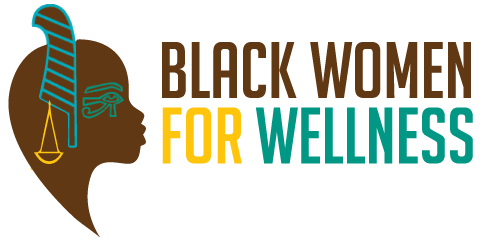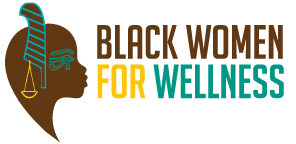BWW in the News – Article – The Constant Fight
Original Article: FinalCall.com
The Constant Fight Against Disrespect Of The Black Female
By Charlene Muhammad -National Correspondent- | Last updated: Apr 6, 2017 – 3:30:37 PM
LOS ANGELES—Comments like conservative TV talk show host Bill O’Reilly’s public denigration of U.S. Congresswoman Maxine Waters with a “joke” left Black women fuming and responding.
Advocates and activists weren’t laughing when Mr. O’Reilly referred to Rep. Waters’ hair as a “James Brown wig,” during a March 28 interview on the show Fox & Friends. That same day April Ryan, White House reporter for the American Urban Radio Network was disrespected by Press Secretary Sean Spicer, who told her to stop shaking her head during a Q&A.
Black women fired back immediately, some through the hashtag #BlackWomenAtWork, which was created by Brittany Packnett. Black women used Twitter to post stories about micro-aggressions in the work place and Black female empowerment.
“When the white woman who gets your job gets less grief for pornographic photos than you got for baring your arms,” read one post on Twitter.
“Appeared in suburban court in suit looking for my client. Judge says ‘Have a seat. Your lawyer will be here shortly,’” read another.
“My boss: your hair is making too much statement. Me: Susan’s has 4 different colors. My boss: yes but it’s not an afro,” said another Tweet.
Mr. O’Reilly backtracked afterward, saying he respected Rep. Waters for being sincere in her beliefs and saying making a joke about her hair was dumb. Mr. Spicer had not issued a public apology at press time.
“I am a strong Black woman, and I cannot be intimidated, and I’m not going anywhere,” Rep. Waters said.
Ms. Ryan, who tweeted “Lawd!” for her initial response, has since been hired as a political analyst for CNN.
The mistreatment of Rep. Waters and Ms. Ryan shocked some, but these instances are just part of relentless, historical, and unapologetic disrespect on Black women and girls in American society, said educators and advocates.
Last year, comedienne Leslie Jones of the Ghostbusters movie remake and Saturday Night Live star, was attacked online and called an ape, among other vile and racist insults. The hateful attacks sparked the hashtag #LoveforLeslieJ by the movie’s director Paul Frieg, and #BlackMenSupportLeslie, by activist Blake Simmons.
These ugly attacks were preceded by verbal assaults on former U.S. First Lady Michelle Obama and her two young daughters before President Barack Obama even took office.
“When I got your request for an interview regarding the attack on Black women, I said which attack, because you know what? It was a rough, rough week for Black women,” said Janette Robinson Flint, founder and executive director of Black Women for Wellness.
The founder of the L.A.-based organization said Ms. Ryan “didn’t even give Sean Spicer a good head shake,” not to mention Mr. O’Reilly totally disrespecting a distinguished congresswoman with a long track record.
It also brought to mind the cases of missing Black girls in Washington, D.C., she added. And, said Ms. Robinson Flint, “Then, I thought about in Chicago, where they raped a young Black girl, live streamed it on Facebook, and nobody called 911.”
“First and foremost, it is the Black man’s responsibility to protect his woman,” stated Dr. Ava Muhammad, national spokesperson for the Honorable Minister Louis Farrakhan.
The disrespect of Black women and girls is occurring as Donald Trump’s presidency is imploding, and in the context of the fall of America, as the Honorable Elijah Muhammad, patriarch of the Nation of Islam, warned would take place, she said.
“America is at an end. She is being dismantled, and as a last desperate attempt to push back on judgment, to push back on God’s will, we are experiencing at the end the same criminal and vicious actions that America engaged in at the beginning at 1555, which is snatching and subjugating our young girls,” Min. Muhammad stated.
The African American Policy Forum devoted several days to discussing the challenges and the triumphs of Black women during “Her Dream Deferred 2017,” a conference held March 27-31 in Los Angeles. The gathering included a March 27 discussion on “Afro-Colombian Women: Resistance at the Intersection of Racism, Sexism, and War” and the next day was devoted to “Say Her Name: An Evening of Arts and Action.” Sessions March 29 focused on “LaTasha Harlins: The Victimization of Black Girls,” while March 30 centered on “The Not So Silver Screen: Black Women in Media.” The last day was devoted to “The New Frontier: Black Women and Tech Activism.” The African American Policy Forum’s “Her Dream Deferred” series aims to raise awareness about the various ways Black girls and women are constrained and targeted.
The tragic death of Latasha Harlins decades ago remains relevant to the plight of Black women today. Her death was captured on surveillance camera. The 15-year-old Black girl was shot in the back of the head after going into a liquor market to buy a bottle of orange juice on March 16, 1991. Soon Ja Du, a 51-year-old Korean store owner ultimately charged with 1st degree murder, claimed she was trying to steal the juice.
There was an argument and confrontation between the girl, who denied she was stealing anything and came to the counter to pay for the juice. When the child turned and walked away, the Korean merchant shot her in the back of the head. The jury convicted Ms. Du of voluntary manslaughter and recommended a maximum 16-year sentence. Judge Joyce Karlins, who is White, overrode their decision. The judge sentenced Ms. Du to six months probation.
Soon Ja Du, 51, left, leaves court with her husband Billy Hong Ki Du in Los Angeles, Nov. 24, 1992. The U.S. Justice Department investigated Mrs. Du on whether she could be charged with a federal crime in the shooting death of Black teenager Latasha Harlins. Mrs. Du was in court seeking permission to return to her native Korea for an indefi nite period of time.
“Latasha’s case is critical to the way we in Los Angeles think about the vulnerability of Black girls,” said Prof. Kimberlé Crenshaw of Columbia and UCLA Law during a panel discussion at the Hammer Museum.
“One of the things that strike me is the way in which anti-Black bias, right, anti-Black girl bias, is embedded in the jury’s verdict, and is embedded in the judge’s decision to grant Soon Ja Du probation,” said Priscilla Ocen, Loyola Law School associate professor.
“There’s no question that Soon Ja Du shot Latasha Harlins intentionally,” said Prof. Ocen. “The jury found that Soon Ja Du was reasonably provoked by Latasha Harlins. That means that she was provoked by Latasha Harlins’ mere presence in the store, by her attempt to make a purchase, that she was so threatened by her and the jury found this to be reasonable,” Prof Ocen observed. “This 15-year-old, Black girl, this 5’6” Black girl is a walking threat because she had the audacity to be alive, to be a child, and to enter that store.”
Prof. Brenda Stevenson, UCLA historian and author of “The Contested Murder of Latasha Harlins: Justice, Gender and the Origins of the L.A. Riots,” agreed that the judge never considered the girl a victim.
“She (Judge Karlins) talks about Latasha as did the defense attorneys, as if she wasn’t even female, as if she was male—she was strong, and she’s hard-hitting,” Prof. Stevenson said. “And she insults everyone in the courtroom by saying that if Latasha had lived, that she probably would be before her as for assaulting Mrs. Du. … She really resonates with Mrs. Du as a victim, and she never considers the vulnerability of Latasha as a child, as a girl, as someone who’s just going about her business early Saturday morning. Somebody catches her, assaults her, and she responds to it,” Prof. Stevenson said.
Instead of Ms. Du, imagine there’s a Black shopkeeper in Beverly Hills who mistakenly assumes “Muffy” was stealing, and handles things similarly, Prof. Crenshaw said. “I think that the shopkeeper exception would not apply. Now she’s the angry Black woman, hair-trigger temper. We don’t get the whole story about the maternal instinct, looking after her son, being a hard worker. That’s not part of the background interpretive frame that ever gets applied to Black women,” Prof. Crenshaw argued.
She added, “There’s the constant conversation about the school to prison pipeline. There’s constant conversation about violence. There’s constant conversation about teachers who underinvest in Black youth, but for the most part, that conversation has focused on Black youth who are boys. And it turned out that the community didn’t really know about how Black girls actually have been marginalized.”
The marginalization includes Black girls being 2.7 times more likely than White girls to be referred to the juvenile justice system from other social service agencies such as schools, mental health facilities or the child welfare system, according to the Black Women’s Roundtable, a D.C.-based civic engagement network.
Black girls are often accused of committing “technical” violations such as truancy, running away, underage drinking and being “hard to control.”
Such violations make up one-third of offenses that lead to the incarceration of Black girls, according to the organization’s “Black Women in the U.S., 2017: Moving Our Agenda Forward in a Post-Obama Era” report.
The fourth annual study found Black women and girls are 40 percent of sex trafficking victims, compared to Whites (25.6 percent), Hispanic (23.9 percent), Asian (4.3 percent) and other (5.8 percent).

